bonocomet
Blue Crack Distributor
I think most of the photos have gone to the Misc threads, so here are the photos all together so far here. Please post any more info, articles, and pics here too if you like! 
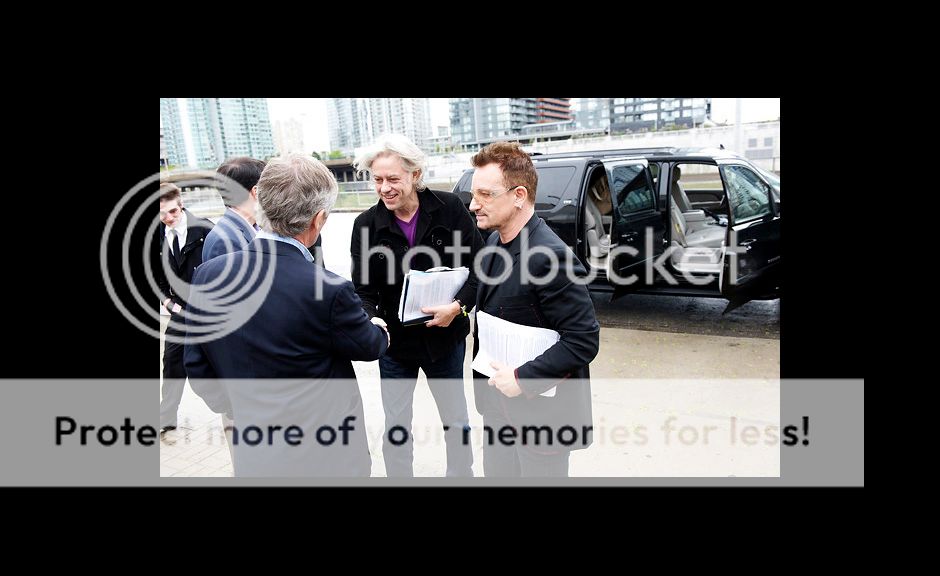
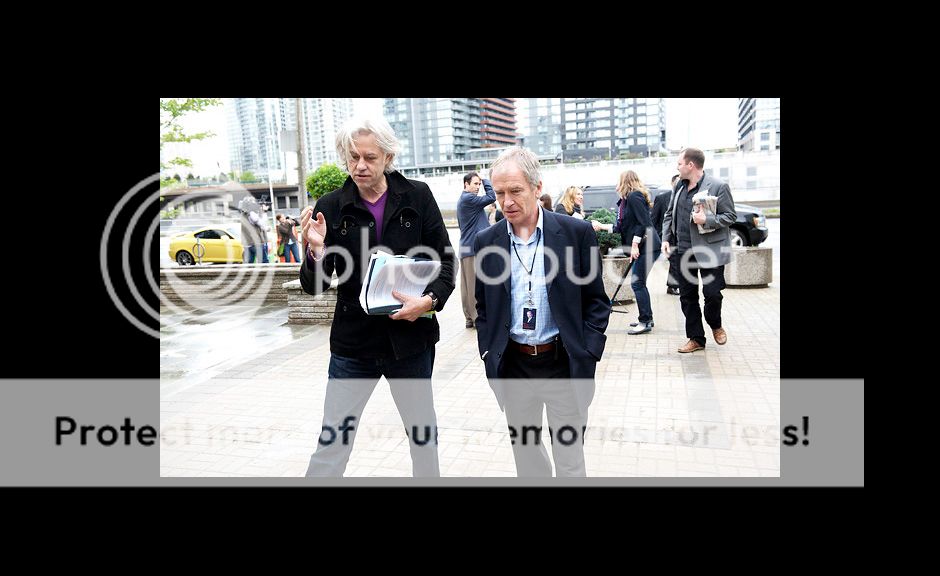
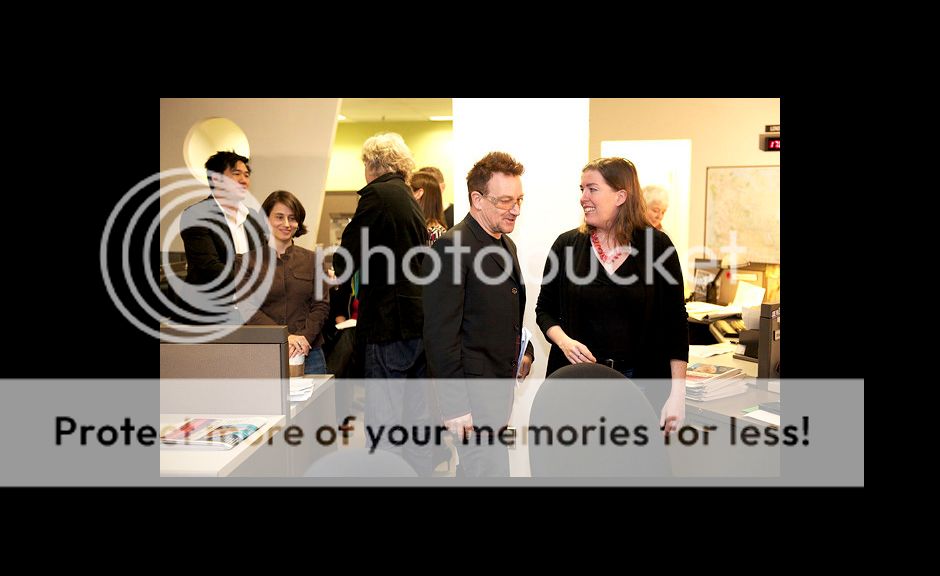









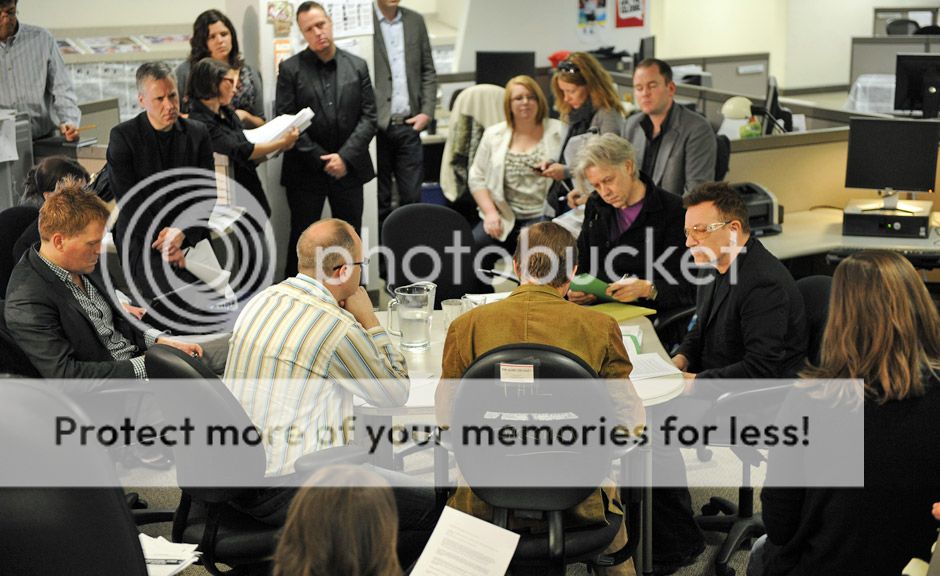
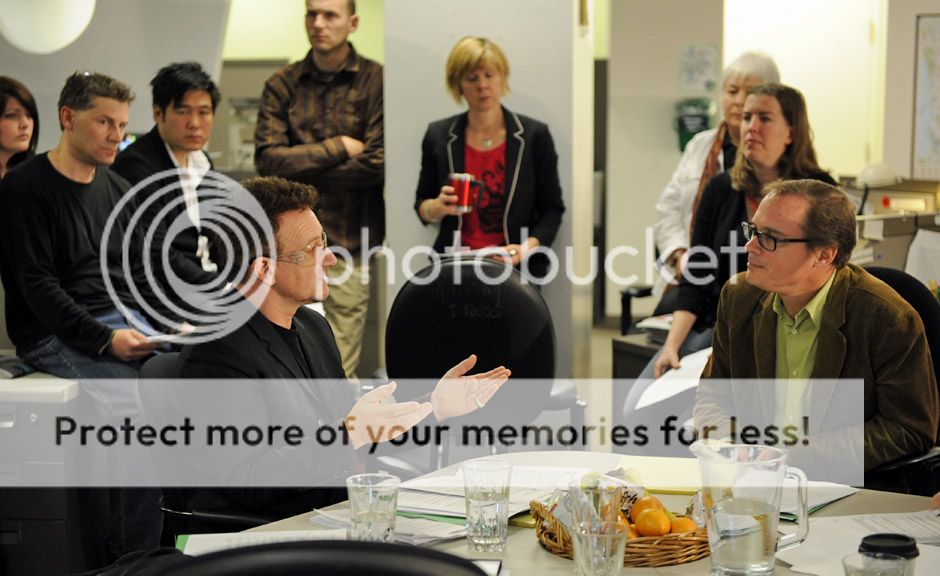
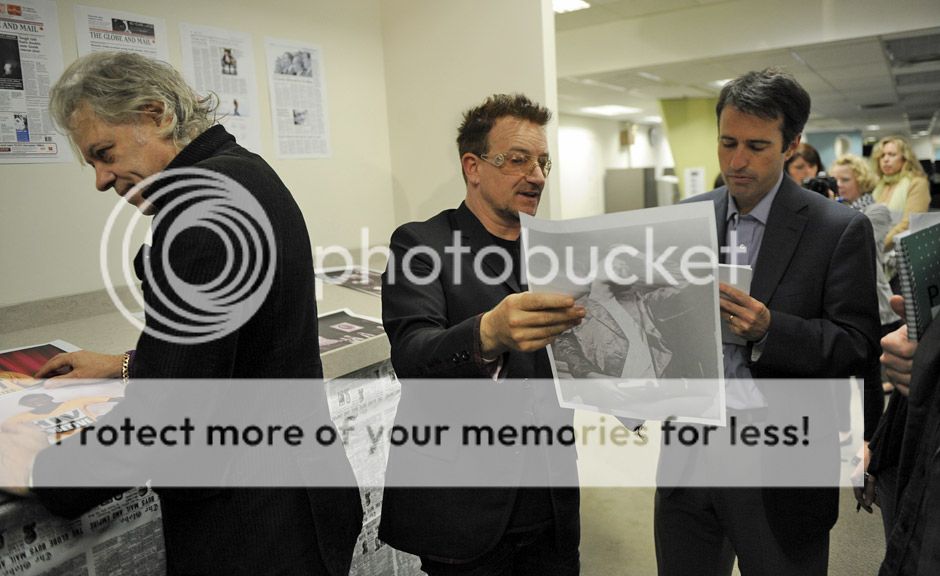
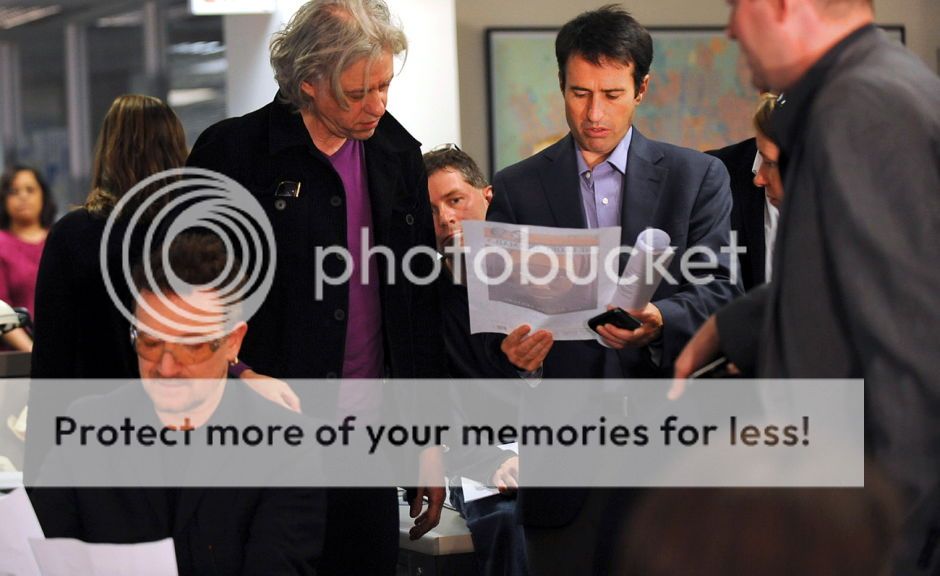
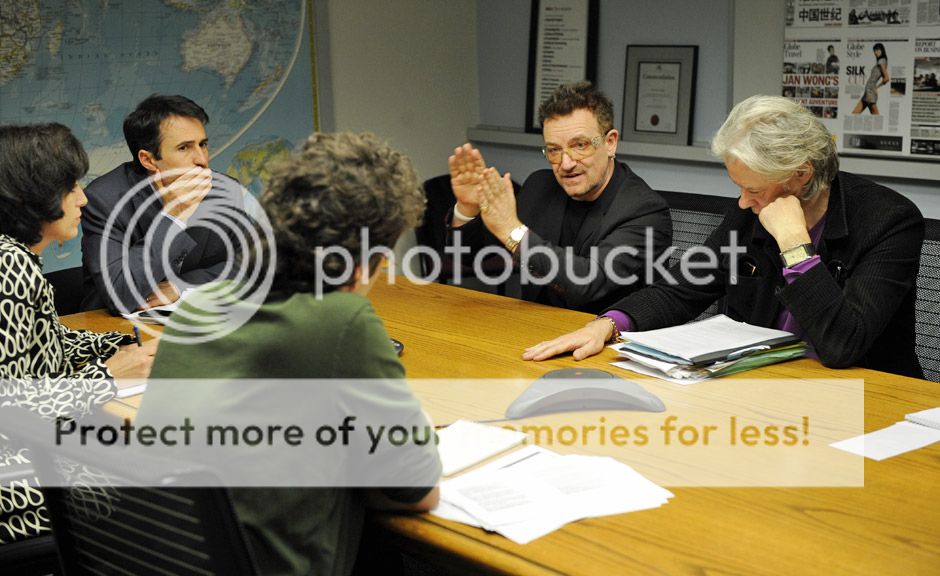
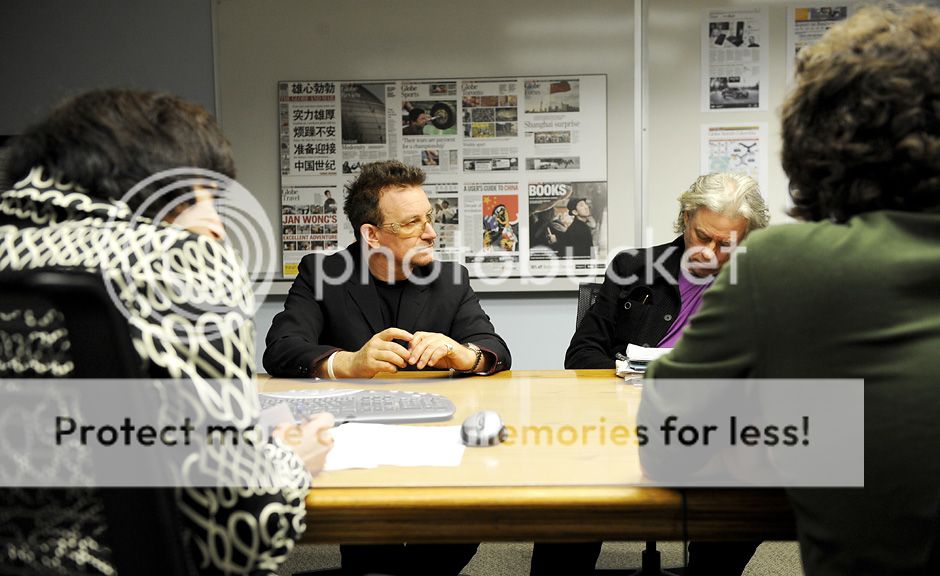
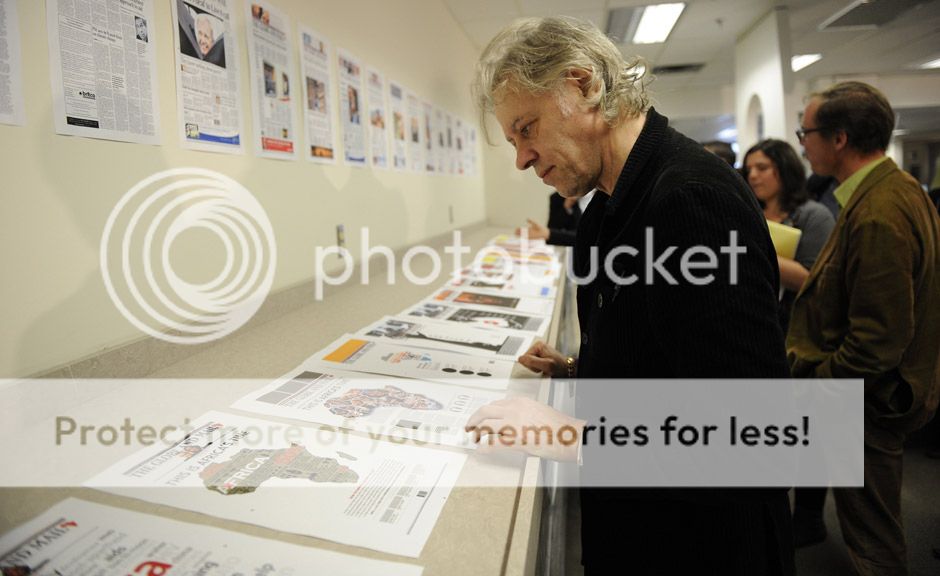
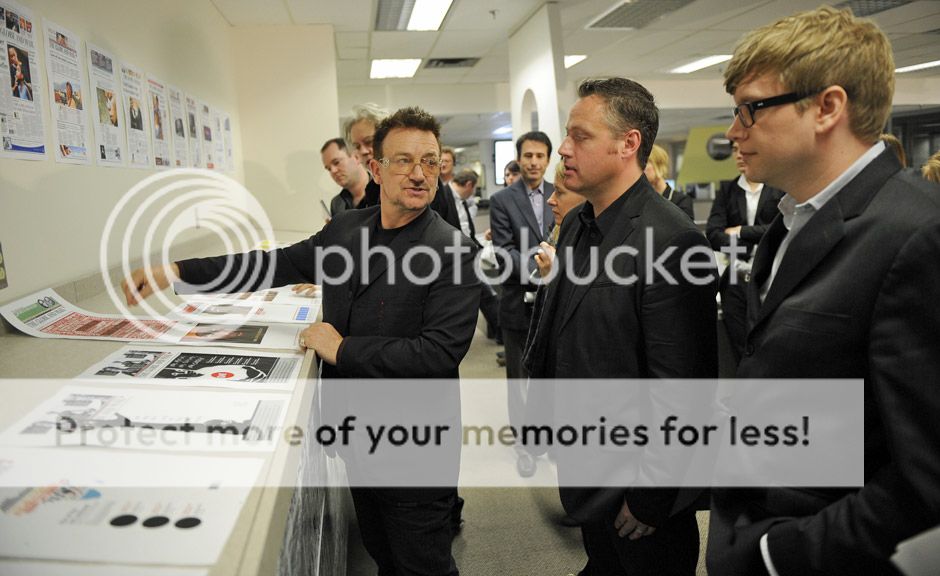
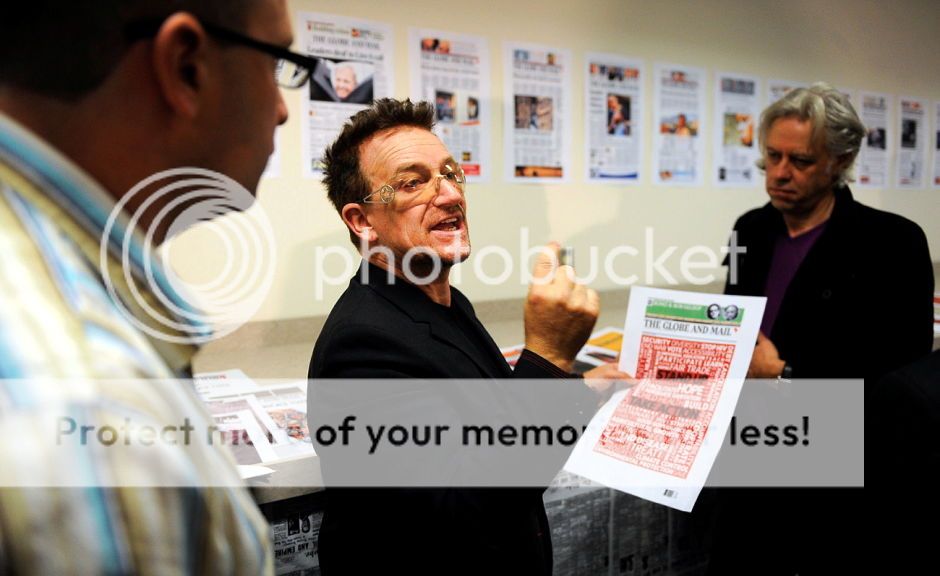
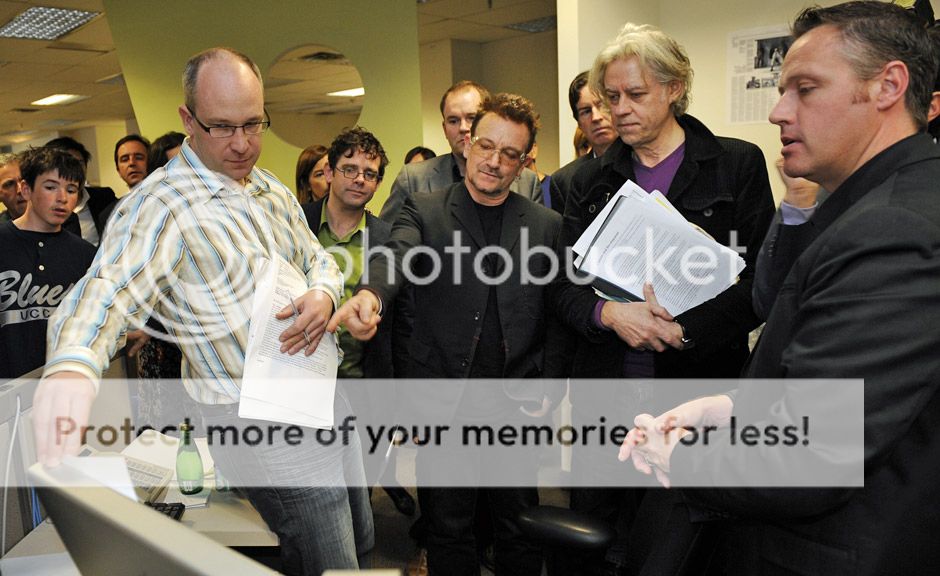
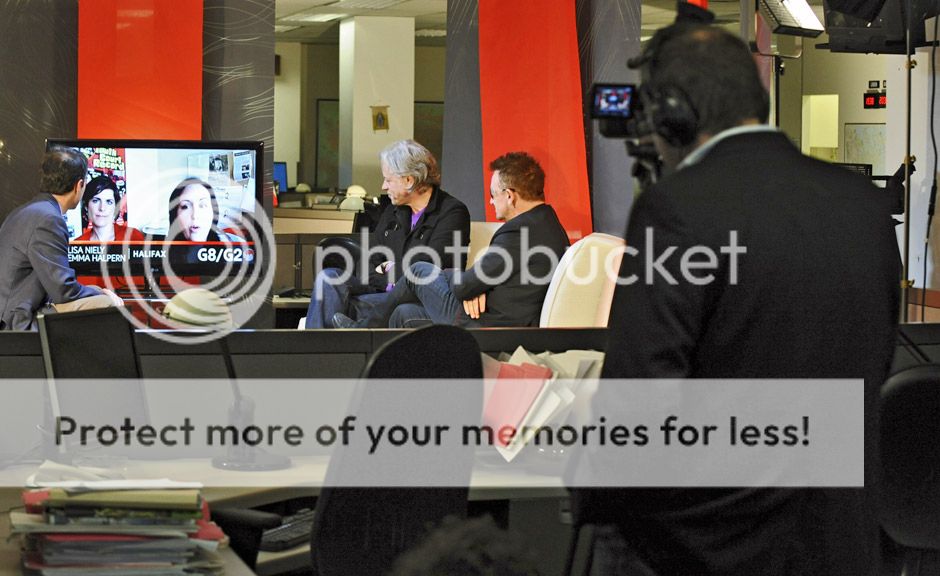
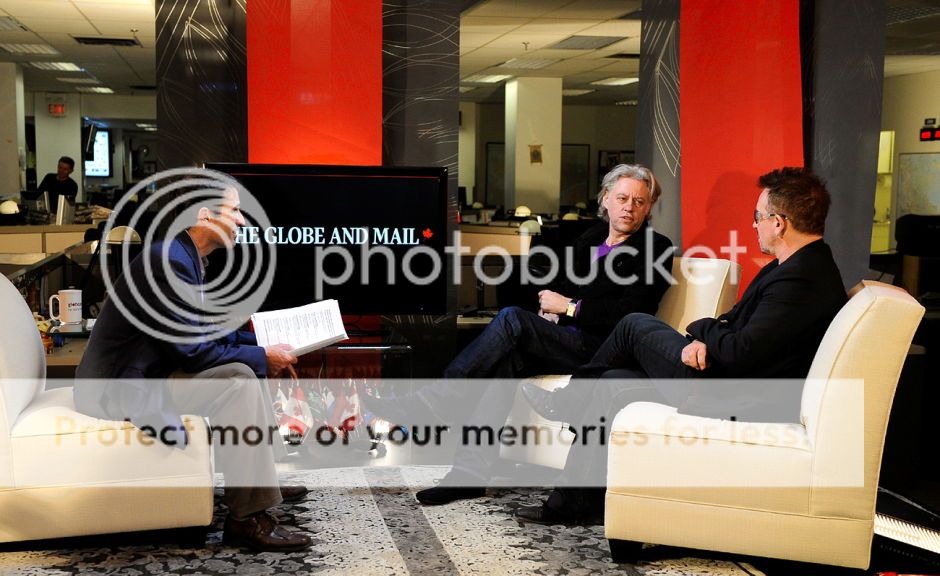
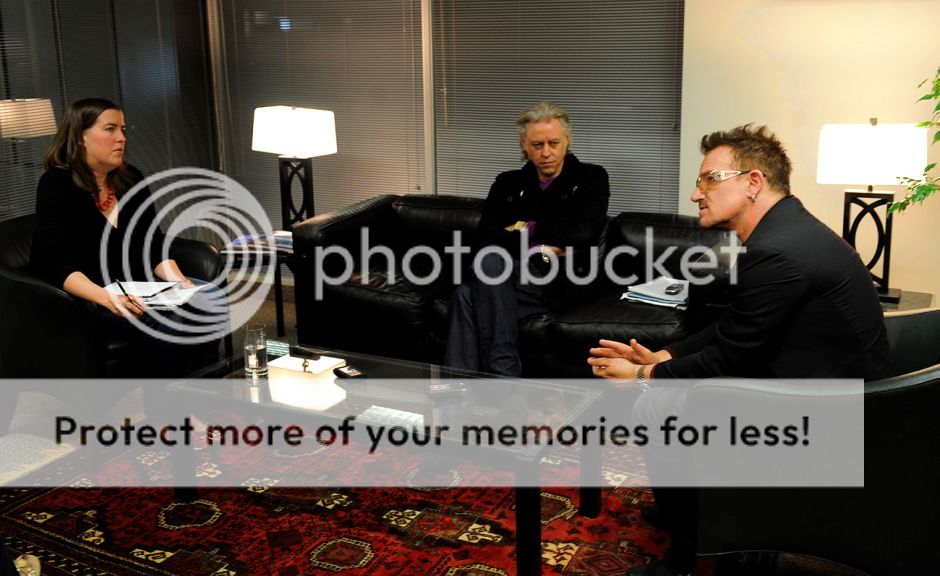
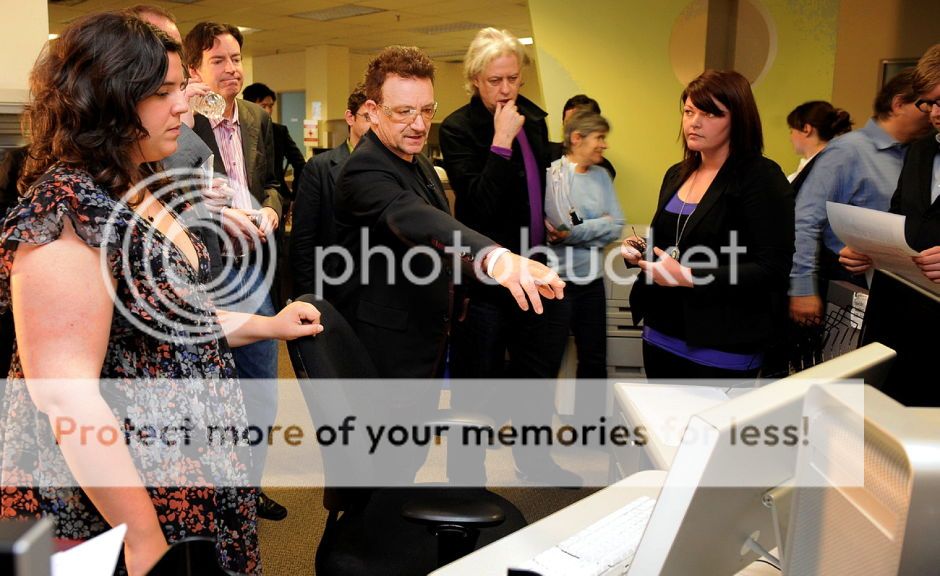
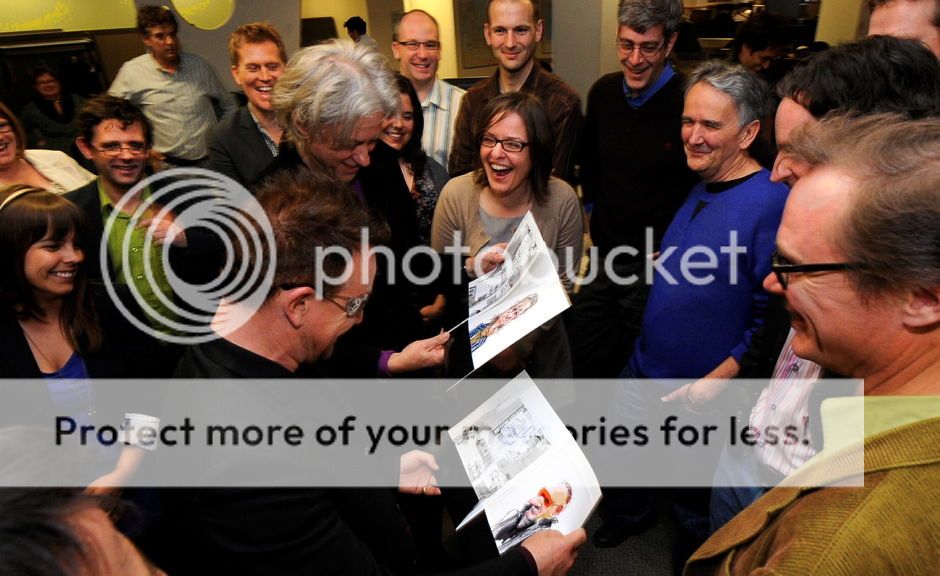
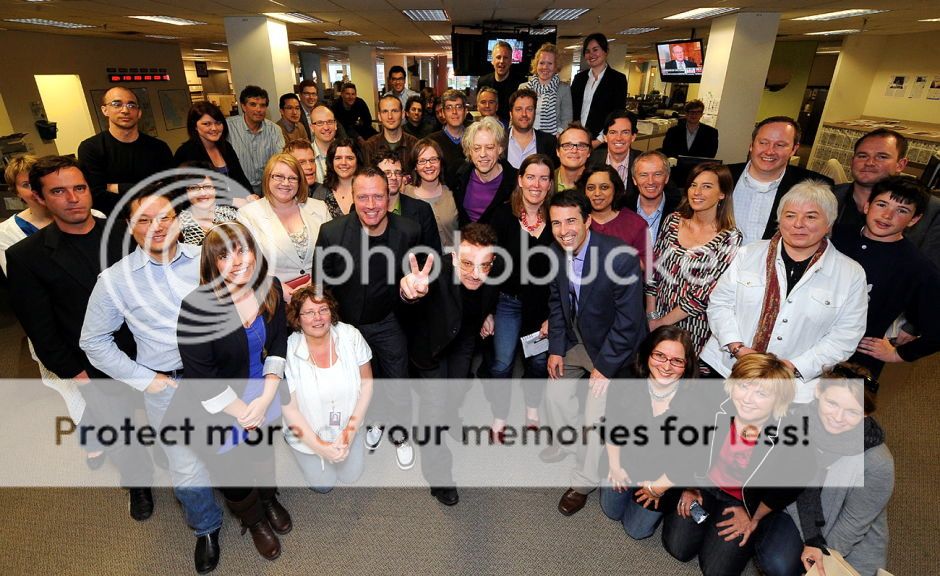
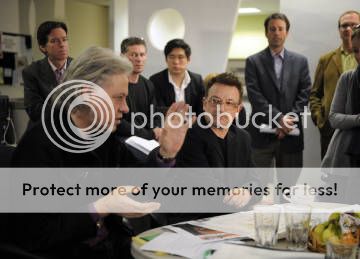
Stephanie Nolen
Globe and Mail Update Published on Sunday, May. 09, 2010 11:04PM EDT Last updated on Sunday, May. 09, 2010 11:53PM EDT
Gentlemen, since we announced that you’d be guest-editing an issue on the future of Africa, we’ve been deluged with sharp comments from readers who want to know why we’re asking two white European rock stars about the future of Africa and not, say, Africans. What would you tell them?
Bob Geldof: We don’t, in any way, claim to be spokesmen for Africa. That would be insulting and absurd. In both our cases we’re interested in the issue of poverty. It seems to both of us to be an odd discrepancy, especially when the world, though it doesn’t appear to be right now, has never been richer.
Bono: Absurdity is the word I’d use.
Geldof: In 2005, we [were part of a group who pushed to] focus the G8 on delivering a doubling of aid to Africa and total debt cancellation by 2010. [Since then we have] dogged the G8’s footsteps to do what they said they would do. We believe that when a politician makes a promise to the poorest people of the planet it’s an almost sacred promise because it’s a promise from the powerful to the weak, from the rich to the poor and if you fail to keep it then there are horrendous consequences … so we asked an English paper, Could we edit one of their editions? They agreed. [It became] a tradition. The Japanese, the Italians, the Germans have allowed us to take the major paper of record and allowed the two of us to focus for just one day on one of the great problems of the 21st century, poverty.
Bono: What we try to do, because we come out of pop culture, is take the issues that are so often obfuscated with arguments at a very high level for and against aid and we try to make them more accessible for people and to just … to remind people there are some very achievable goals here.
I do accept the rather cringe-worthy photograph that often accompanies our work where you have rich rock stars next to the most vulnerable people in the world, we are sometimes embarrassed by this juxtaposition but if that’s what it takes to divert attention to the arguments then I’ll put up with the embarrassment.
Geldof: The longevity of our interest might give us a shred of cred, you know, I mean we’ve been doing this a long time.
Bono: Can I also point out, in the end, luminous – or loony [nods at Geldof] – personalities won’t rule the day. Social movements are what it takes to change things and the reason why it’s important that we in the North take an interest in this is that it’s decisions north of the equator that heavily impact the lives of the most vulnerable. We’ve learned this from bad trade agreements to the unfair debt cancellation agreements and lack of access to drugs you can find in any drug store.
Canada is not isolated from that and these decisions taken in offices and in government here really affect real men, women and children. They have names. They’ve got aspirations. And the more you meet them the more you can’t deny them. Our job is to help people to meet them through our conversation, through editing The Globe and Mail, so that if there is somebody with the strength of will and purpose who is ready to do the unpopular thing at home – because clearly building a school in a constituency in Ottawa or in Quebec will earn you more votes than building one in Malawi – we will be wind at your back, if you take that on.
It’s 2010: what’s the status on the commitments you received from G8 leaders five years ago?
Geldof: It’s looking pretty good, you know. Within nine months of Live 8, we had total debt cancellation.
Bono: These complex issues like debt cancellation, I think we helped to make them popular and then the people who got out on the streets and who got active and got busy now can point to real results, such as 42 million children in school. This actually makes two points. One, that it’s possible to change the game north of the equator. Two, that African leaders can make good with where they put their money.
Geldof: In 2002, only 50,000 [Africans] at the epicentre of the AIDS pandemic could get [antiretrovirals] because there were no drugs available and they had no money to pay for them. Within three and a half years, there were 3.7 million people getting them for free. That’s staggering. And ordinary people achieved that by their concern and activism.
I get the impression you’re feeling somewhat let down by Canada, in terms of its G8 commitments.
Bono: You know, I was the person going, “the world needs more Canada” and just as we were saying that [in 2003] Canada sort of seemed to narrow its ambition for what was possible in the development agenda. And maybe we got that wrong. Maybe we were too stringent. Maybe we were too harsh in our criticisms of people who are truly elected representatives and we’re not.
And what we have got to do now is to try and reconnect those dots and have Canadian people say, left or right, this mustn’t be held hostage by all corny politics. Just say, this is who we are as Canadians. [Foreign aid] is a tiny, tiny percentage. [Canadians can say] we’ve done so well because of good leadership. We haven’t suffered the market meltdown. But there’s another kind of meltdown, which is the moral sort of abdication – and that has repercussions.
What would you say Canadians, people in the developed world, perhaps don’t realize about Africa?
Geldof: That it’s strategic.
Bono: That’s it, exactly.
Geldof: There’s a new perspective looming up. There’s a different world emerging. China is one part of it, but Africa’s going to have strategic importance. The politicians keep seeing it through the old prism of “it’s our obligation to give them aid,” and we’ve got to change that.
Some of our readers are going to look at this issue and say, “But we did so much: debt cancellation; increased aid. You can buy an iPod now to raise money for ARVs. But Africa’s still a disaster.”
Geldof: When someone says we’ve done this and we’ve done that and nothing’s changed … they are wrong, all of those things worked and were excellent but the amount was ultimately so tiny and the problem of human suffering is so vast.
Bono: [Interrupts] No, but it is changing. It’s a completely different landscape. In the next five years, malaria will almost be chased off the continent, the dreaded Anopheles mosquito that kills two and a half thousand kids a day in Africa. We’re winning and energy moving forward is attractive.
How has your engagement with Africa, with poverty, changed over the years?
Bono: A lot of people realize that the real way out of poverty is never aid. It’s commerce. I didn’t get into becoming an activist thinking like that but I’ve learned that. It’s quite sad that I, as an activist, who came to this preferably prepared to be on the barricades with a handkerchief over my nose, [laughing] have ended up now myself aroused by the sight of cement mixers, the roads being built.
Geldof: Ultimately, they will get out of this condition through trade but for that, you need to build coherent institutions and that will require Africans themselves building them and that requires civil society and that requires people alive and being able to gather together. And that’s what aid does, it stabilizes the situation at a very low level, basic agriculture, basic health and basic education.
In 2002, Bono, you and I had a conversation in Uganda, you had just come from Soweto where you met a man named Jonah, who, you said, “looked like more of a rock star than I ever will.” His wife had died of AIDS, he had nearly died, before he got the drugs through a Doctors Without Borders project. And he had fallen in love with someone new. You told me how he told you, “What do I do? I can share the drugs with her and we both die slowly. I can give her my drugs and then both of my children lose their last parent. Or I can keep the drugs and lose the love of my life.” And you told me how haunted you were by his situation.
Bono: It’s extraordinary to think back to that conversation. It really was not that long ago. The change is extraordinary.
Thinking back to Jonah, considering the progress – is there a person who stands out for you the same way now?
Bono: In March, I went to a clinic in Kenya, a Project Red clinic, and I met this woman and her kid Timothy. He was 4 but he looked 2. And she was distressed and I said, “What’s going wrong,” and they said, “Well, Timothy is in a bad …” and I said, “What’s the problem,” and they said “Well, he’s got a complication and we don’t have the drugs for him.” This is one of our clinics! And [the nurse] said, “Well, actually they’re expensive drugs and they’re not [available here].” And I said, “Hold on, they must be available somewhere.” And he said “Well, we can’t buy them.” So I said, “I’ll fucking buy them, just get me them.” So we went and bought the drugs and came back to the hospital. But the kid’s dead. Timothy. And when we’ve met him … And then I just thought, Timothy: the name means “Honour God,” but I thought I would honour Timothy. Because that’s who we work for actually.
Stephanie Nolen was The Globe’s Africa bureau chief from 2003 to 2008 and is the author of 28: Stories of AIDS in Africa.
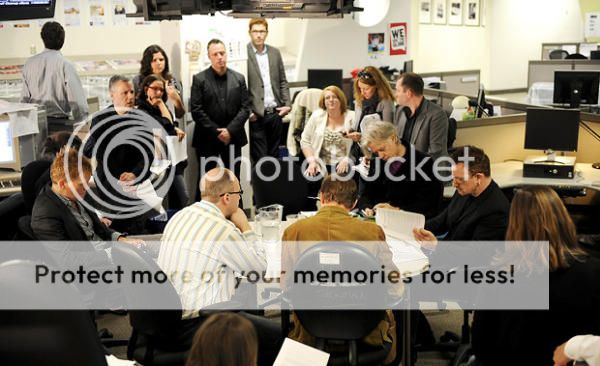
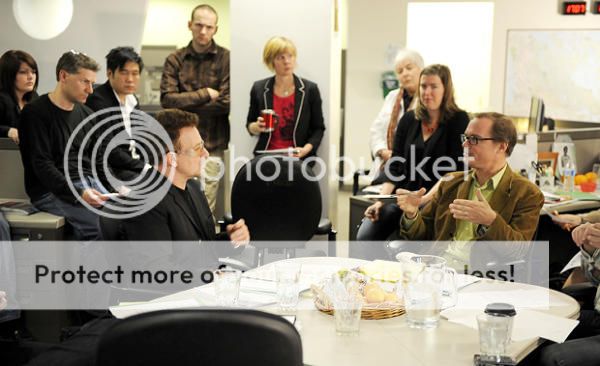

















lol
Brian Gable/The Globe and Mail
Bob Geldof.
Brian Gable/The Globe and Mail
Bono.
Brian Gable/The Globe and Mail
Editorial cartoon of Bono and Bob Geldof.
 I love this.
I love this.Anyone from Toronto have any extra copies of that issue? I want one.
